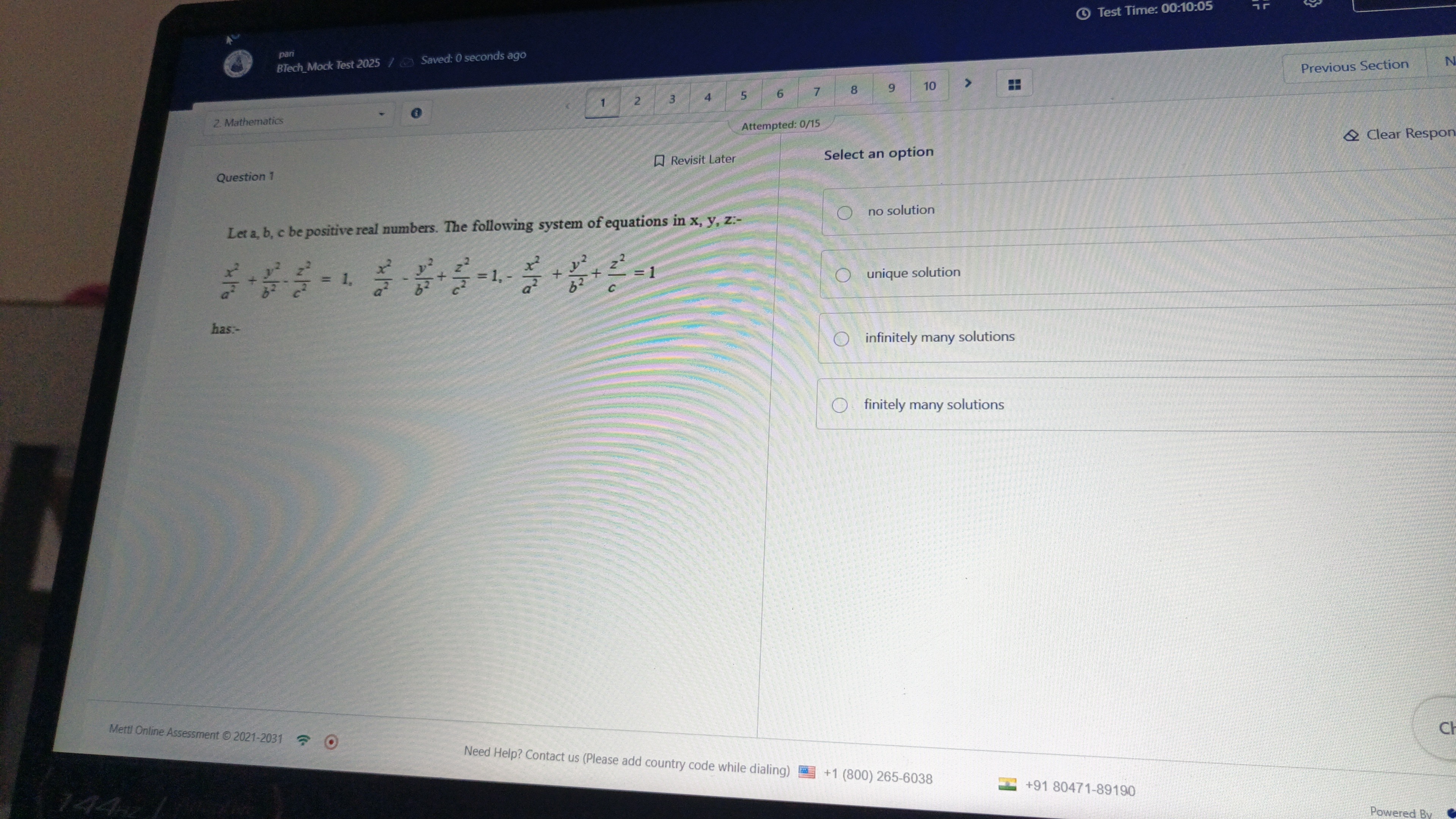Question
Question: Let a, b, c be positive real numbers. The following system of equations in x, y, z:- $\frac{x^2}{a^...
Let a, b, c be positive real numbers. The following system of equations in x, y, z:-
a2x2+b2y2+c2z2=1,a2x2−b2y2+c2z2=1
has:-

no solution
unique solution
infinitely many solutions
finitely many solutions
infinitely many solutions
Solution
The given system of equations is:
- a2x2+b2y2+c2z2=1
- a2x2−b2y2+c2z2=1
Subtract equation (2) from equation (1):
(a2x2+b2y2+c2z2)−(a2x2−b2y2+c2z2)=1−1 a2x2+b2y2+c2z2−a2x2+b2y2−c2z2=0 2b2y2=0Since b is a positive real number, b2=0. Therefore, we must have:
y2=0⟹y=0Now, substitute y=0 back into equation (1):
a2x2+b202+c2z2=1 a2x2+c2z2=1This is the equation of an ellipse in the xz-plane. Since a and c are positive real numbers, this ellipse is a well-defined curve. An ellipse contains infinitely many points. For every point (x,z) on this ellipse, the triplet (x,0,z) is a solution to the given system of equations.
Since there are infinitely many points on an ellipse, the system has infinitely many solutions.
